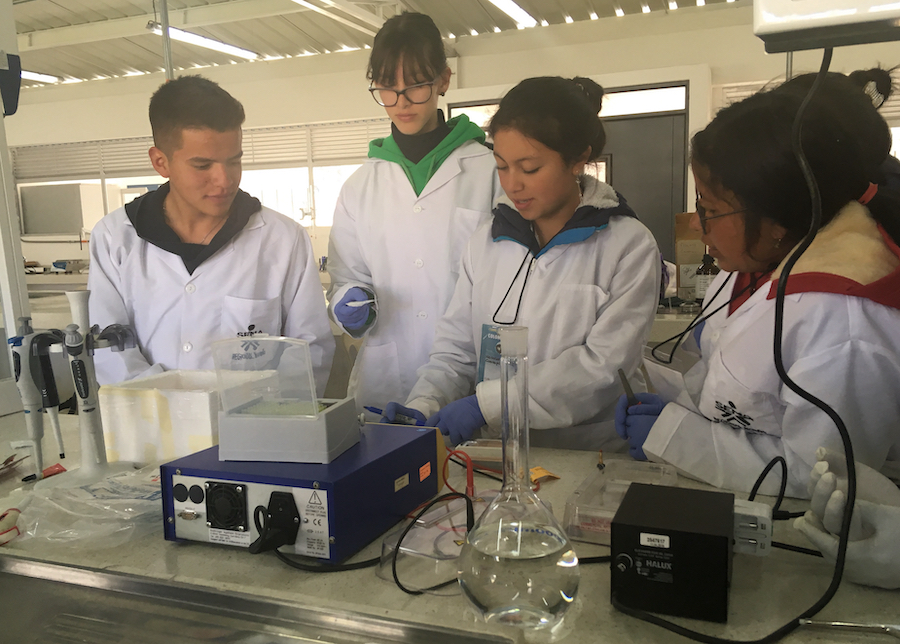Aktuelles
18.02.2021
Science cooperation and fight against COVID-19 in Latin America
Inspiring the next generation of scientists in Latin America. This is the mission of Science Clubs Colombia (Clubes de Ciencia Colombia – www.clubesdeciencia.co), a Colombian citizen initiative to bring science to rural and remote areas in Colombia.
Roger D. Castillo is a Colombian DAAD scholar at the University of Tübingen since 2017. Actually, he is doing his Ph.D in the department of Pharmaceutical Biology at the Pharmaceutical Institute in the group of PD Dr. Bertolt Gust. In 2019, Roger D. Castillo applied to join the Science, Technology, Engineering, Art, and Maths (STEAM) education initiative in order to pass his experience on to future scientist in Colombia. The aim of the program is to design short, one week of STEAM courses using project-based learning and hands-on experience for kids and young people in rural areas of Latin America. Science Clubs Colombia was born in 2015 as a program hosted in Colombia as part of the global initiative Science Clubs International (www.scienceclubsint.org). Since then, Science Clubs International expanded to several countries in and around of Iberoamerica. The organization has been working with the German Academic Exchange Service (DAAD) as an important stakeholder to keep in touch with the Colombian scholars in Germany.
The mission of Science Clubs Colombia is to expand scientific education for children and young people in Colombia for inspiring and mentoring the next generation of scientists in Latin America, and to create an international network for academic and scientific collaborations. In 2019, 5316 children of all ages participated in this program, instructed by 506 researchers from all around the world. Among the instructors were eleven DAAD scholars with either Ph.D or Master degree, including Roger D. Castillo (holding a DAAD scholar since 2017) and one of the found members of Science Clubs Colombia, Bryann Avendaño (DAAD scholar in 2014). They worked together in a STEAM course in Tuquerres, a rural and remote area of Nariño-Colombia. Science Clubs Colombia built connections between Roger, Bryann and the rural communities in Nariño.
In 2020, the COVID-19 pandemic began as a health crisis around the world creating a great challenge that included most Latin American countries. The region responded with a series of public health policies following the Pan American Health Organization (PAHO) and World Health Organization (WHO). Currently, the communities in Nariño are also facing challenges with COVID-19. This is the moment for scientists committed to help.
In January 2020, Roger D. Castillo joined the Center for Health Studies at the University of Nariño and the Departmental Institute of Health in Nariño as a volunteer. The department of Nariño is located in the south west of Colombia, close to the border with Ecuador. From the epidemiological point of view, it is a strategic place, because a constant flow of migrants has emerged and intensified in recent years, especially from Venezuela. During this period, Roger advised the process of SARS Cov-2 diagnostic. He also collaborated with the team in charge of setting up a future NB2+ laboratory for diagnosis at the University of Nariño, which will be financed by the Government of Colombia. Cooperation with the Deutsche Gesellschaft für Internationale Zusammenarbeit (GIZ) will allow these entities to carry out joint investigations in the future, for example with The German Epidemic Preparedness Team (SEEG) among others. The current pandemic has demonstrated, how important international cooperation and voluntary services are in such crisis.
Roger Castillo, Bryann Avendano and Bertolt Gust

